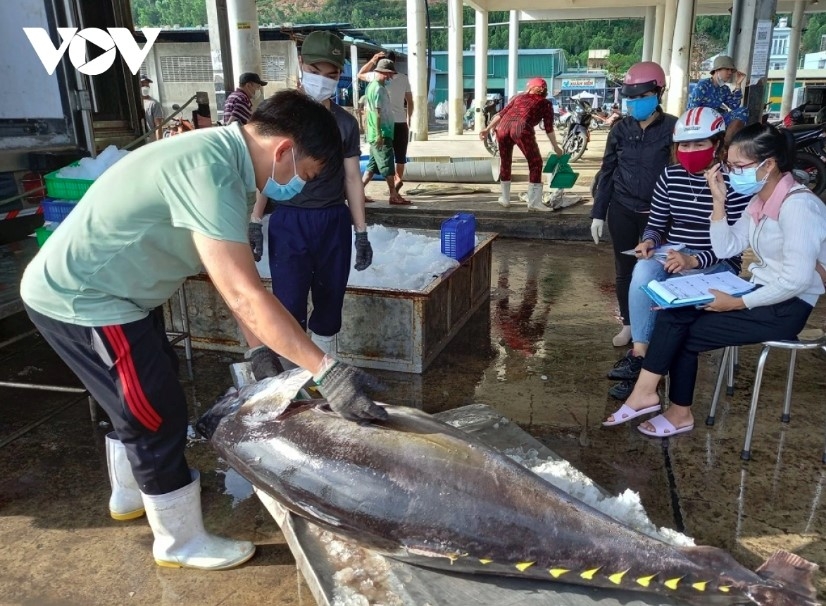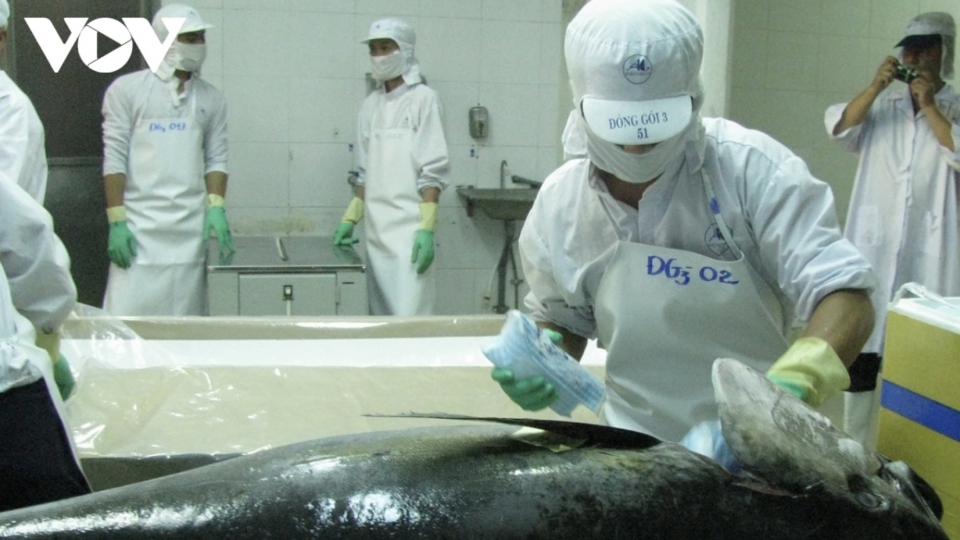Raw material crisis, stricter IUU controls hinder tuna industry’s recovery
VOV.VN - Vietnam’s tuna exports are unlikely to rebound in the final quarter as the industry continues to struggle with raw material shortages, tighter IUU (illegal, unreported and unregulated) fishing controls and rising compliance costs, according to the Vietnam Association of Seafood Exporters and and Producers.

Citing data from the Vietnam Customs, the Vietnam Association of Seafood Exporters and and Producers (VASEP) reported that tuna export revenue reached US$791 million in the first ten months of the year, representing a slight fall of 4% year on year.
The EU remained one of the few bright spots, with exports rising 16% in October to nearly US$15 million. Shipments to the Netherlands and Italy saw triple-digit growth, helping to push total EU-bound tuna exports in the reviewed period to almost US$175 million, up 4% compared to the same period last year.
In the Comprehensive and Progressive Agreement for Trans-Pacific Partnership (CPTPP) bloc, exports to Mexico and Chile showed signs of improvement in October, climbing 51% and 16%, respectively. However, the rebound was not strong enough to offset earlier declines, leaving year-to-date exports to Mexico and Chile down 4% and 29% respectively.
Meanwhile, tuna exports to the US fell again in October, bringing the 10-month total to nearly US$294 million, down 8%, though the US still accounts for more than 37% of Vietnam’s tuna export value, making it the country’s largest destination.
VASEP attributed the drop to cautious ordering amid tight consumer spending and high inventories, as well as the impact of new reciprocal tax rates that place Vietnam at a disadvantage compared with competitors such as Thailand, Indonesia and Ecuador.
Shipments to Japan also plummeted by 33% in October. In contrast, Egypt emerged as a fast-growing market, with imports from Vietnam surging 128% to nearly US$21 million, putting the country among Vietnam’s top eight tuna export markets for two consecutive months.
Overall, VASEP warned that the tuna sector continues to face major challenges, including unstable domestic raw material supply and heavy reliance on imports.
High logistics costs and the pressure of IUU compliance remain obstacles, while major markets such as the EU, US and Japan are imposing increasingly strict requirements on traceability and sustainability certifications.
Given these headwinds, VASEP forecast that Vietnam’s tuna exports are unlikely to recover in the fourth quarter of the year.




